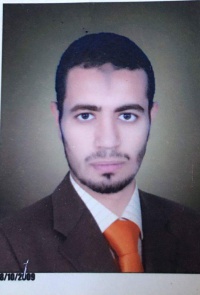Mohamed Said had been tried in absentia and sentenced by an Egyptian court in 2014 for "belonging to a banned organisation", the Muslim Brotherhood which is considered by the Egyptian authorities, as terrorist since 2013. On 8 August 2016, a year and a half after moving to Saudi Arabia, Mohamed Said received a deportation order from the Saudi authorities, to which he consequently surrendered himself on 22 August 2016. He was detained at the Dammam Deportation Centre, where he was informed that the Ministry of Interior (MoI) had decided to forcibly return him to Egypt. Since, he remains detained incommunicado, without access to a lawyer and has no legal avenue to challenge the MoI's decision.
Given Egypt's record of torturing individuals convicted of "joining banned or terrorist organisations" as punishment or to force them to self-incrimination, Alkarama believes that Mohamed Said faces evident and serious risks of torture if he is returned to Egypt. Indeed, this year, Alkarama has documented the case of Omar Mabrouk, an Egyptian citizen, who was extradited by the Kuwaiti authorities to Egypt, where he was subjected to brutal torture for months. He is now facing an unfair trial solely based on the confessions he made under torture.
"We are extremely worried of the consequences that such deportation may entail," asserts Simone Di Stefano, Regional Legal Officer for the Nile, who further stated that "as already shown by the Mabrouk case, if deported back to Egypt, Said is likely to face tremendous consequences such as secret detention and severe ill-treatment, if not torture, in relation to the charges brought against him. The halt of the deportation is therefore of major significance."
Alkarama therefore requested the SRT to urgently intervene with the Saudi authorities to stop Mohamed Said's forcible return to his home country as he is at serious risk of torture and his extradition would thus be a violation of article 3 of the Convention against Torture (UNCAT) ratified by Saudi Arabia in 1997.
For more information or an interview, please contact This email address is being protected from spambots. You need JavaScript enabled to view it. (Dir: +41 22 734 1008).
 Algeria
Algeria Bahrain
Bahrain Djibouti
Djibouti Egypt
Egypt Iraq
Iraq Palestine/Israel
Palestine/Israel Jordan
Jordan Kuwait
Kuwait Lebanon
Lebanon Libya
Libya Mauritania
Mauritania Morocco
Morocco Oman
Oman Qatar
Qatar Saudi Arabia
Saudi Arabia Sudan
Sudan Syria
Syria Tunisia
Tunisia United Arab Emirates
United Arab Emirates Yemen
Yemen Other Countries
Other Countries







